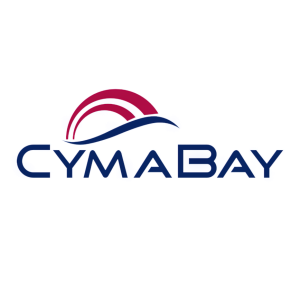Gilead Sciences Announces Completion of Acquisition of CymaBay
Acquisition Reinforces Gilead’s Leadership in Developing Innovative Therapies For Challenging Liver Diseases
“The acquisition of CymaBay brings us a potential best in disease therapy that could transform the treatment landscape for people with primary biliary cholangitis,” said Daniel O’Day, Chairman and Chief Executive Officer, Gilead Sciences. “I want to thank the CymaBay team for their efforts and commitment to addressing this high unmet need. We look forward to advancing seladelpar and building on Gilead’s more than 20-year legacy of treating and curing liver disease on a global scale.”
On February 12, 2024, Gilead and CymaBay announced that CymaBay, Gilead and Pacific Merger Sub, Inc., a wholly owned subsidiary of Gilead (“Purchaser”), had signed a definitive merger agreement pursuant to which a tender offer would be made. Pursuant to the merger agreement, Gilead and Purchaser commenced a tender offer on February 23, 2024, to acquire all outstanding shares of CymaBay at a price of
As a result of the completion of the merger, CymaBay has become a wholly owned subsidiary of Gilead and the common stock of CymaBay will no longer be listed for trading on the Nasdaq Global Select Market, which is expected to take effect as of the close of market on March 22, 2024.
This transaction is expected to be accounted for as an asset acquisition and reduce Gilead’s GAAP and non-GAAP 2024 EPS by approximately
Seladelpar is an investigational product that has not been approved for use anywhere globally, and its safety and efficacy have not been established.
About Gilead Sciences
Gilead Sciences, Inc. is a biopharmaceutical company that has pursued and achieved breakthroughs in medicine for more than three decades, with the goal of creating a healthier world for all people. The company is committed to advancing innovative medicines to prevent and treat life-threatening diseases, including HIV, viral hepatitis, COVID-19, and cancer. Gilead operates in more than 35 countries worldwide, with headquarters in
Forward-Looking Statements
This communication contains forward-looking statements related to Gilead, CymaBay and the acquisition of CymaBay by Gilead that are subject to risks, uncertainties and other factors. All statements other than statements of historical fact are statements that could be deemed forward-looking statements, including all statements regarding the intent, belief or current expectation of Gilead and CymaBay and members of their respective senior management teams. Forward-looking statements include, without limitation, statements regarding the transaction and related matters, prospective performance and opportunities, post-closing operations and the outlook for the companies’ businesses, including, without limitation, the ability of Gilead to advance CymaBay’s product pipeline and successfully commercialize seladelpar; the possibility of unfavorable results from clinical trials; regulatory applications and related timelines; difficulties or unanticipated expenses in connection with integrating the companies; and any assumptions underlying any of the foregoing. Investors are cautioned that any such forward-looking statements are not guarantees of future performance and involve risks and uncertainties and are cautioned not to place undue reliance on these forward-looking statements. Actual results may differ materially from those currently anticipated due to a number of risks and uncertainties. Risks and uncertainties that could cause the actual results to differ from expectations contemplated by forward-looking statements include: the effects of the transaction on relationships with employees, other business partners or governmental entities; the difficulty of predicting the timing or outcome of regulatory approvals or actions, if any; the impact of competitive products and pricing; other business effects, including the effects of industry, economic or political conditions outside of the companies’ control; transaction costs; actual or contingent liabilities; adverse impacts on business, operating results or financial condition in the future due to pandemics, epidemics or outbreaks; and other risks and uncertainties detailed from time to time in the companies’ periodic reports filed with the
Gilead and the Gilead logo are trademarks of Gilead Sciences, Inc., or its related companies. The CymaBay name and logo are trademarks of CymaBay.
For more information about Gilead, please visit the company’s website at www.gilead.com, follow Gilead on X/Twitter (@Gilead Sciences) and LinkedIn (@Gilead-Sciences).
View source version on businesswire.com: https://www.businesswire.com/news/home/20240322979704/en/
Investors:
Jacquie Ross
investor_relations@gilead.com
Media:
Ashleigh Koss
public_affairs@gilead.com
Source: Gilead Sciences, Inc.







